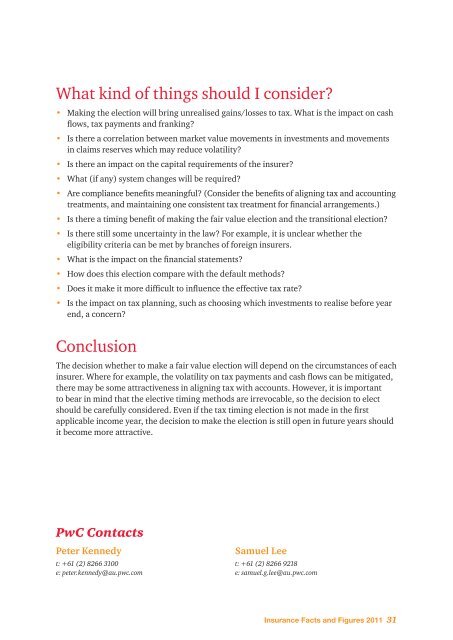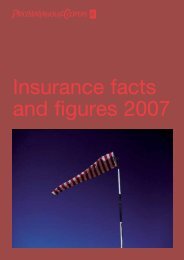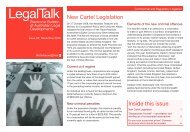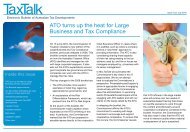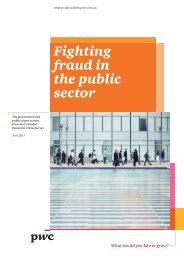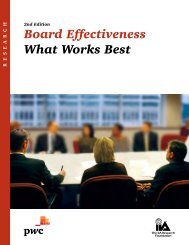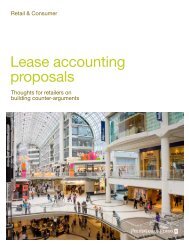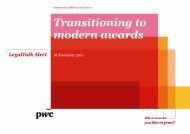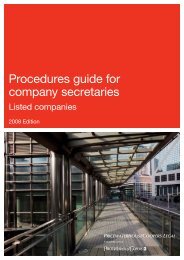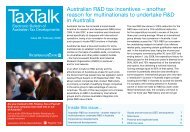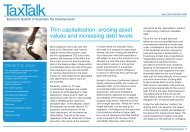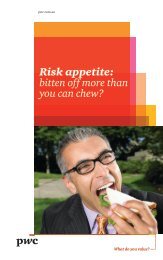PwC Insurance Facts and Figures 2011 - PricewaterhouseCoopers
PwC Insurance Facts and Figures 2011 - PricewaterhouseCoopers
PwC Insurance Facts and Figures 2011 - PricewaterhouseCoopers
Create successful ePaper yourself
Turn your PDF publications into a flip-book with our unique Google optimized e-Paper software.
What kind of things should I consider?<br />
• Making the election will bring unrealised gains/losses to tax. What is the impact on cash<br />
flows, tax payments <strong>and</strong> franking?<br />
• Is there a correlation between market value movements in investments <strong>and</strong> movements<br />
in claims reserves which may reduce volatility?<br />
• Is there an impact on the capital requirements of the insurer?<br />
• What (if any) system changes will be required?<br />
• Are compliance benefits meaningful? (Consider the benefits of aligning tax <strong>and</strong> accounting<br />
treatments, <strong>and</strong> maintaining one consistent tax treatment for financial arrangements.)<br />
• Is there a timing benefit of making the fair value election <strong>and</strong> the transitional election?<br />
• Is there still some uncertainty in the law? For example, it is unclear whether the<br />
eligibility criteria can be met by branches of foreign insurers.<br />
• What is the impact on the financial statements?<br />
• How does this election compare with the default methods?<br />
• Does it make it more difficult to influence the effective tax rate?<br />
• Is the impact on tax planning, such as choosing which investments to realise before year<br />
end, a concern?<br />
Conclusion<br />
The decision whether to make a fair value election will depend on the circumstances of each<br />
insurer. Where for example, the volatility on tax payments <strong>and</strong> cash flows can be mitigated,<br />
there may be some attractiveness in aligning tax with accounts. However, it is important<br />
to bear in mind that the elective timing methods are irrevocable, so the decision to elect<br />
should be carefully considered. Even if the tax timing election is not made in the first<br />
applicable income year, the decision to make the election is still open in future years should<br />
it become more attractive.<br />
<strong>PwC</strong> Contacts<br />
Peter Kennedy<br />
t: +61 (2) 8266 3100<br />
e: peter.kennedy@au.pwc.com<br />
Samuel Lee<br />
t: +61 (2) 8266 9218<br />
e: samuel.g.lee@au.pwc.com<br />
<strong>Insurance</strong> <strong>Facts</strong> <strong>and</strong> <strong>Figures</strong> <strong>2011</strong> 31


